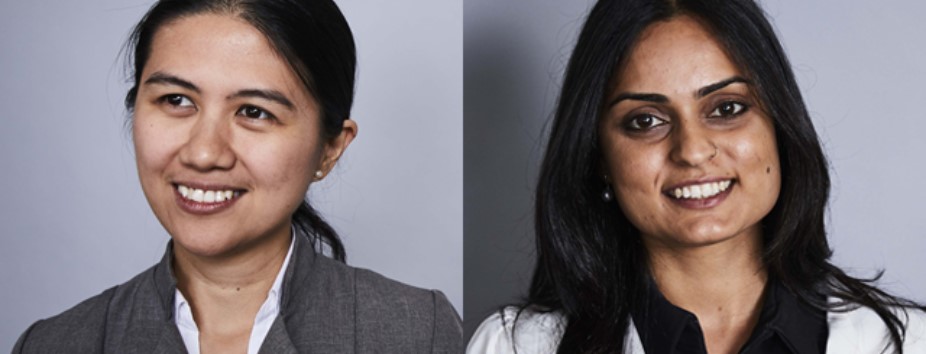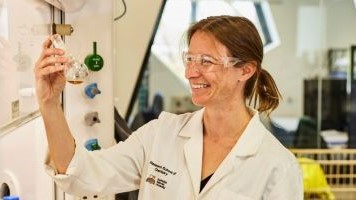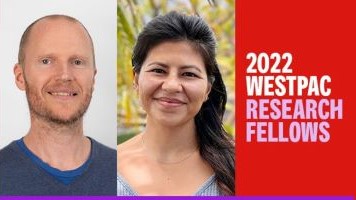
Today the Westpac Scholars Trust announced its 2019 Westpac Research Fellows, recognising two of Australia’s most promising researchers – Dr Jacq Romero and Dr Meru Sheel – who will receive $1 million in combined funding over three years to advance their innovative research.
With data privacy at the heart of realising the potential of our increasingly digital world, quantum physicist and mother of three, Dr Jacq Romero from The University of Queensland believes the key to data security could lie in a ‘quantum alphabet’ made, not out of letters, but from different shapes of light.
Dr Romero is an expert in encoding messages using the alphabet based on the shapes of “photons” – the quantum particles of light. She believes quantum communications using this technology could allow us to transmit information with unprecedented security. She will now have the opportunity to explore this further through the Westpac Research Fellowship.
“In practice, quantum communication is far from widespread adoption, my project aims to narrow theoretical and experimental gaps.”
Global health researcher, Dr Meru Sheel from The Australian National University describes herself as a ‘disease detective’. She plans to use her Westpac Research Fellowship to develop an evidence-based approach to strengthening our operational response to outbreaks in Australia and the Asia-Pacific as part of Australia’s health security commitment.
“Some countries in the Asia-Pacific region are prone to natural disasters and disease outbreaks,” said Dr Sheel.
“These emergencies often have greater impact in settings with limited resources, vulnerable public health systems and high population density, where I believe there is an opportunity for greater coordination and collaborative leadership between key partners, responders and multi-lateral agencies. I plan to use my Fellowship to explore this.”
According to Susan Bannigan, CEO of the Westpac Scholars Trust: “Dr Romero and Dr Sheel are true visionaries. They combine innovative research with the ability, drive and passion to actively influence positive change for the future growth and prosperity Australia.”
“Partnering with The Australian National University and The University of Queensland to support these extraordinary women increases their potential to succeed. The networks and development opportunities they will receive in addition to the funding is what separates this fellowship from others.”
The Westpac Research Fellowship is co-funded in partnership with the researchers’ respective universities, The Australian National University and The University of Queensland.
University of Queensland Vice-Chancellor and President Professor Peter Høj AC said collaborative partnerships enhanced the University’s capacity to deliver globally significant solutions.
“The University is proud to partner with the Westpac Scholars Trust to help outstanding early career researchers such as Dr Romero to realise their full potential,” Professor Høj said.
“We’re excited to see where the Westpac Research Fellowship will take Jacqui and her already outstanding research.”
Both Dr Romero and Dr Sheel are strong advocates for greater diversity in science and are committed to seeing the research sector evolve to provide greater opportunities for women in leadership positions, including primary carers.
“I’m very aware of the challenges facing minority groups in science – I am Filipino, female, and a mum raising three young children. Receiving this level of support from the Westpac Scholars Trust is invaluable. In addition to my research, I am passionate about creating an academic environment that is friendly for scientist mothers like me,” said Dr Romero.
ANU Deputy Vice-Chancellor (Research and Innovation) Professor Keith Nugent said the University’s partnership with the Westpac Scholars Trust is highly valued and has provided significant opportunities for many researchers to address Australia’s greatest challenges.
“The uniqueness of the networks and professional development included in the Westpac Research Fellowship, makes it incredibly valuable to early career researchers.” Professor Nugent said. “On behalf of ANU, congratulations to Dr Sheel on receiving this Fellowship against a highly competitive field.”
Beyond the financial investment of the scholarship, the Westpac Research Fellows gain lifelong access to the Westpac 100 Scholars Network. Growing by 100 scholars a year across the Westpac Scholars Trust’s five scholarship programs, the network connects a community of people from all walks of life with the ideas and drive to help shape a better future for all Australians.
“The Westpac 100 Scholars Network is proving to be a powerful differentiator for our Scholarship Program. With lifelong access to professional development and unlimited networking opportunities, scholars have the power to transform big ideas into real solutions,” continues Susan.
Published 25 March 2018


